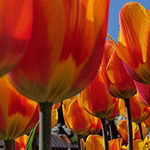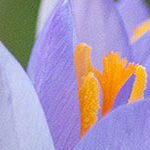A soft focus lens is a great tool for portrait photographers. Soft focus lenses produce results that are reminiscent of the soft focus pictorialist photography style that was prevalent in the early 20th century. Buying such a lens, however, can be pricey. Luckily, you can build one at home. Randy Snook shows us how:
Building a soft focus lens at home is easier than you think. Randy Snook calls this lens the ‘Piped Dream’ and is built using material that is very easy to find. It basically consists of a pipe, a lens and an adapter. With this brief and very informative tutorial by Snook, it is even easier to assemble.
What you need
You only need about $15 worth of items:
- a 65mm single element coated PNM (positive meniscus) lens
- a focusing mechanism (Snook used a 1 ¼” PVC pipe (Schedule 40 Joint Union)
- a Canon to 55mm lens reverse adapter ring
- glue
- paint
How to Assemble a DIY Soft Focus Lens
Unscrew the PVC joint union. Set aside the contraption and the rubber ring that are inside, and take the two parts. These will be your focusing mechanism. Spray paint them with black paint.
The hard part is probably jam threading the 55mm reverse adapter ring to the back of the larger pipe part. There are no threads at the back of the pipe, so you have to use a bit of force.
Once the reverse ring is jam threaded, use super glue to fix it in position.
The next task is to put the positive meniscus lens in place. There are two sides to the lens: a concave side and a convex side. Place the convex side facing down and the concave side facing up.
Once the lens is positioned perfectly, use a hot glue gun to put a small ring around the lens to fix it in position.
The final task is to put the two parts of the pipe together by screwing them together. This screwing in and out motion of the pipe will also work for focusing the lens.
The lens has only one aperture, but you can add a homemade aperture for a slightly larger depth of field. Just cut out a circle of posterboard that fits inside the lens, and cut out the size of aperture you’d like to try out.
We’d love to see how this project goes for you! Share your tips and photos in the comments.
Like This Article?
Don't Miss The Next One!
Join over 100,000 photographers of all experience levels who receive our free photography tips and articles to stay current:












I wonder if there’s an adapter to fit other cameras (such as my Nikon)?